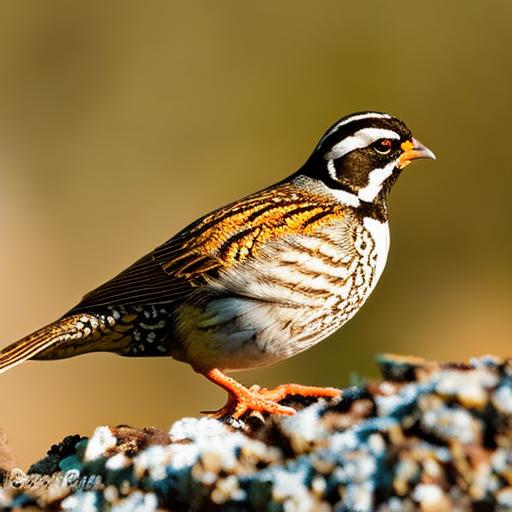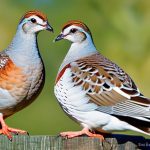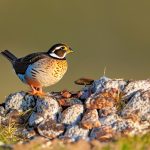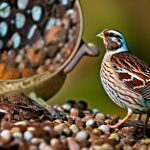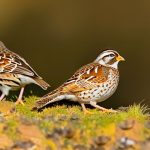Quail, like many other birds, are particularly susceptible to heat stress. When the ambient temperature rises above a certain threshold, quail can struggle to regulate their body temperature, leading to a range of health issues. Heat stress can manifest in various ways, including decreased feed intake, reduced egg production, increased mortality rates, and even organ failure. It’s crucial for quail farmers to understand the risks associated with heat stress and take proactive measures to mitigate them. By recognizing the signs of heat stress and understanding its potential impact on quail health and productivity, farmers can implement effective strategies to keep their birds safe and comfortable during the hot summer months.
Heat stress occurs when quail are unable to dissipate excess body heat, leading to a rise in core body temperature. This can be exacerbated by high humidity levels, which hinder the birds’ ability to cool down through evaporative cooling. As a result, quail may experience respiratory distress, panting, wing spreading, and lethargy as they struggle to cope with the heat. In severe cases, heat stress can lead to heat stroke and death. It’s important for quail farmers to be vigilant and proactive in preventing heat stress, as the consequences can be devastating for both the birds and the farm’s productivity. By understanding the physiological mechanisms behind heat stress and its potential impact on quail welfare, farmers can take the necessary steps to protect their birds from the dangers of excessive heat.
Key Takeaways
- Heat stress can be a serious risk for quail, leading to decreased egg production, poor growth, and even death.
- Proper ventilation in quail housing is essential to prevent heat buildup and maintain air quality.
- Cooling methods such as misting systems or fans can help lower the temperature in quail housing during hot weather.
- Providing shaded areas for quail to escape the sun is crucial for preventing heat stress.
- Adjusting feeding and watering schedules to avoid peak heat times can help reduce the risk of heat stress in quail.
- Monitoring quail behavior and health for signs of heat stress is important for early intervention.
- Consulting with a veterinarian can provide additional advice on keeping quail cool in summer and addressing any specific health concerns.
Providing proper ventilation in quail housing
Proper ventilation is essential for maintaining a comfortable and healthy environment for quail, especially during the hot summer months. Good ventilation helps to remove excess heat, moisture, and airborne contaminants from the quail housing, creating a more comfortable and sanitary living space for the birds. Without adequate ventilation, the air inside the housing can become stagnant and overheated, increasing the risk of heat stress and respiratory problems for the quail. To ensure proper ventilation, quail housing should be designed with adequate air exchange rates, adjustable vents, and fans to promote air movement and cooling.
In addition to natural ventilation, mechanical ventilation systems such as exhaust fans can be installed to enhance air circulation and cooling within the quail housing. These fans can help to remove hot air and moisture from the building, creating a more comfortable environment for the birds. It’s important for quail farmers to regularly inspect and maintain their ventilation systems to ensure they are functioning effectively, especially during the summer months when heat stress is a significant concern. By providing proper ventilation in quail housing, farmers can help to reduce the risk of heat stress and create a more comfortable and productive environment for their birds.
Implementing cooling methods for quail, such as misting systems or fans
In addition to proper ventilation, implementing specific cooling methods can help to alleviate heat stress and keep quail comfortable during hot weather. Misting systems are an effective way to cool the air and create a more comfortable environment for quail. These systems release a fine mist of water into the air, which evaporates and helps to lower the ambient temperature. Misters can be installed in quail housing or outdoor areas where the birds spend time, providing them with relief from the heat and reducing the risk of heat stress.
Fans are another valuable tool for cooling quail housing and outdoor areas. Fans help to promote air circulation and evaporative cooling, reducing the ambient temperature and creating a more comfortable environment for the birds. By strategically placing fans throughout the quail housing and outdoor areas, farmers can help to mitigate the effects of heat stress and create a more pleasant living environment for their birds. It’s important for farmers to consider the specific needs of their quail operation when implementing cooling methods, taking into account factors such as housing design, bird density, and environmental conditions.
Offering shaded areas for quail to escape the sun
Providing shaded areas is essential for allowing quail to escape the direct sun and reduce their risk of heat stress. Shelters or covered areas should be available in both indoor and outdoor spaces where quail are housed or allowed to roam. These shaded areas provide a refuge from the sun’s intense rays and help to lower the ambient temperature, creating a more comfortable environment for the birds. By offering shaded areas, farmers can help to reduce the risk of heat stress and provide their quail with a safe and comfortable space to rest and cool down during hot weather.
In addition to natural shade from trees or structures, farmers can also create artificial shaded areas using tarps or other materials. These shaded structures can be strategically placed in outdoor areas where quail spend time, providing them with relief from the sun and reducing their risk of heat stress. It’s important for farmers to regularly assess their quail housing and outdoor areas to ensure that adequate shaded areas are available for the birds. By offering shaded areas for quail to escape the sun, farmers can help to protect their birds from the dangers of excessive heat and create a more comfortable living environment.
Adjusting feeding and watering schedules to avoid peak heat times
During hot weather, it’s important for quail farmers to adjust their feeding and watering schedules to avoid peak heat times. Feeding quail during cooler parts of the day, such as early morning or late evening, can help to reduce metabolic heat production and minimize the risk of heat stress. Similarly, providing fresh water during these cooler times can help to keep quail hydrated and cool during hot weather. By adjusting feeding and watering schedules, farmers can help to reduce the physiological strain on their birds and minimize the risk of heat-related health issues.
In addition to adjusting feeding and watering schedules, farmers should also ensure that feeders and waterers are placed in shaded areas to prevent them from overheating in the sun. This helps to maintain the quality of feed and water, ensuring that quail have access to fresh and cool resources throughout the day. By carefully managing feeding and watering schedules, farmers can help to minimize the risk of heat stress and create a more comfortable environment for their quail during hot weather.
Monitoring quail behavior and health for signs of heat stress
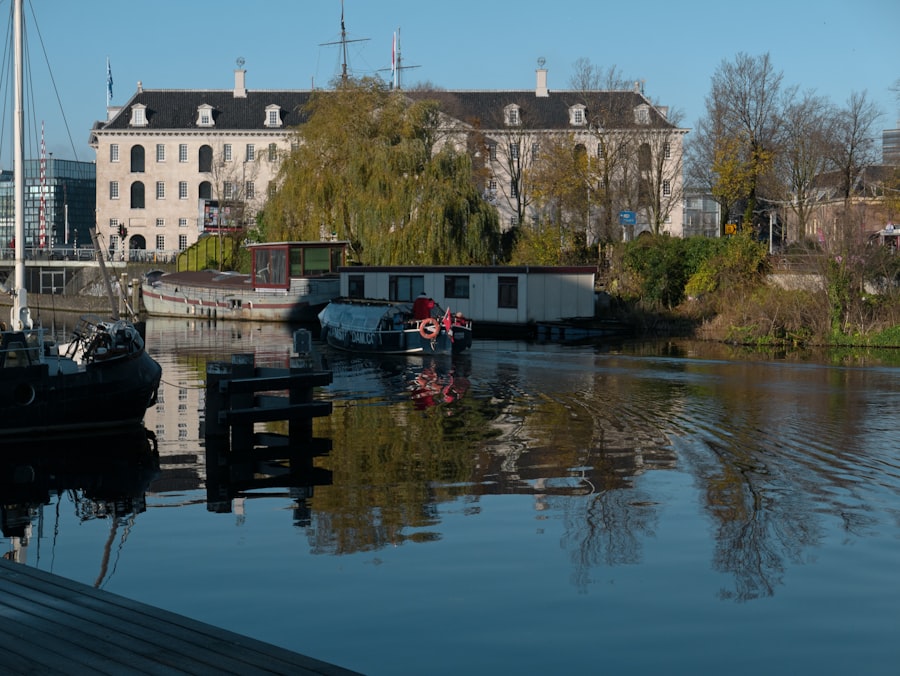
Monitoring quail behavior and health is essential for identifying signs of heat stress and taking prompt action to address any issues. Farmers should regularly observe their quail for signs of distress, such as panting, wing spreading, reduced activity, or lethargy. These behavioral changes can indicate that the birds are struggling to cope with the heat and may be at risk of developing heat stress. In addition to behavioral observations, farmers should also monitor their quail for physical signs of heat stress, such as rapid breathing, drooping wings, or reduced feed intake.
Regular health checks by a qualified veterinarian can also help to identify any early signs of heat stress or other health issues in quail. Veterinarians can provide valuable guidance on monitoring quail health and behavior, as well as recommend specific interventions to address any concerns. By closely monitoring quail behavior and health for signs of heat stress, farmers can take proactive measures to protect their birds from the dangers of excessive heat and ensure their well-being during hot weather.
Consulting with a veterinarian for additional advice on keeping quail cool in summer
Consulting with a veterinarian is an important step in developing a comprehensive strategy for keeping quail cool during the summer months. Veterinarians can provide valuable advice on managing heat stress in quail, including recommendations for housing design, ventilation systems, cooling methods, feeding and watering schedules, and behavioral monitoring. They can also offer guidance on identifying early signs of heat stress in quail and implementing appropriate interventions to address any concerns.
In addition to providing advice on heat stress management, veterinarians can also offer guidance on general health and welfare practices for quail during hot weather. This may include recommendations for nutritional supplements, environmental enrichment, disease prevention strategies, and other measures to support overall well-being in quail. By consulting with a veterinarian, farmers can gain valuable insights into best practices for keeping their quail cool and healthy during the summer months, ultimately contributing to a more successful and sustainable quail farming operation.
In conclusion, understanding the risks of heat stress in quail is essential for protecting their health and welfare during hot weather. By providing proper ventilation in quail housing, implementing cooling methods such as misting systems or fans, offering shaded areas for quail to escape the sun, adjusting feeding and watering schedules to avoid peak heat times, monitoring quail behavior and health for signs of heat stress, and consulting with a veterinarian for additional advice on keeping quail cool in summer, farmers can take proactive measures to mitigate the risks associated with excessive heat and create a more comfortable living environment for their birds. By prioritizing the well-being of their quail and implementing effective strategies for managing heat stress, farmers can ensure that their birds remain healthy and productive throughout the summer months.
As the summer heat approaches, it’s crucial to ensure that your quail stay cool and comfortable. In a recent article on PoultryWizard, they discuss the importance of providing shade and proper ventilation for quail during the hot summer months. They also offer valuable tips on keeping quail cool in summer, which can be found here. This article provides practical advice for quail owners looking to maintain a healthy and stress-free environment for their birds during the warmer weather.
FAQs
What are some ways to keep quail cool in summer?
Some ways to keep quail cool in summer include providing shade, proper ventilation in their housing, offering cool water for drinking and bathing, and using fans or misters to lower the temperature.
Why is it important to keep quail cool in summer?
It is important to keep quail cool in summer because they are sensitive to high temperatures and can suffer from heat stress, which can lead to decreased egg production, poor growth, and even death.
How can I provide shade for my quail in the summer?
You can provide shade for your quail by using natural shade from trees or shrubs, setting up umbrellas or tarps over their housing area, or creating a covered area with a roof or awning.
What should I do if I notice signs of heat stress in my quail?
If you notice signs of heat stress in your quail, such as panting, lethargy, or decreased egg production, you should immediately take steps to cool them down, such as providing cool water for drinking and bathing, increasing ventilation, and offering ice packs or frozen water bottles for them to lean against.
Can I use fans or misters to keep my quail cool in summer?
Yes, you can use fans or misters to keep your quail cool in summer. Fans can help improve air circulation and reduce the temperature, while misters can provide a cooling effect as the water evaporates. Just be sure to monitor humidity levels to prevent excessive moisture buildup.
Meet Walter, the feathered-friend fanatic of Florida! Nestled in the sunshine state, Walter struts through life with his feathered companions, clucking his way to happiness. With a coop that’s fancier than a five-star hotel, he’s the Don Juan of the chicken world. When he’s not teaching his hens to do the cha-cha, you’ll find him in a heated debate with his prized rooster, Sir Clucks-a-Lot. Walter’s poultry passion is no yolk; he’s the sunny-side-up guy you never knew you needed in your flock of friends!

